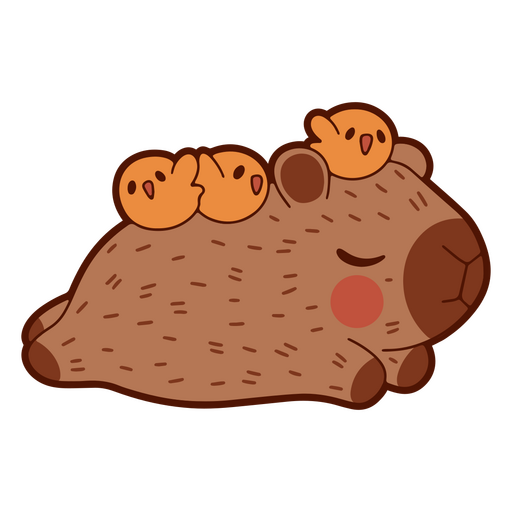WHERE TO GET THE BOOK: http://libgen.is/book/index.php?md5=F6B31A8DAFD6BD39A5986833E66293E6
PRIOR THREADS:
So uuuuuuuuuuuuuuuuuuuuuuuuuuuuuuuuuuuuuuuuuh yeah been a minute lol ![]()
Life comes at you fast. Been going through a lot lately. Met my new nb girlfriend and got into my first relationship at 38 years old ![]() , then we went to the ren faire together dressed as an orc and a goblin (me and her respectively given our over a foot of height difference) then work absolutely beat the shit out of me when I was on the clock for about a month solid, and the free time I did have I preferred to spend cuddling and watching anime with the gf instead of impressing a bunch of weirdo communists on the Internet. I know, I've failed you all
, then we went to the ren faire together dressed as an orc and a goblin (me and her respectively given our over a foot of height difference) then work absolutely beat the shit out of me when I was on the clock for about a month solid, and the free time I did have I preferred to spend cuddling and watching anime with the gf instead of impressing a bunch of weirdo communists on the Internet. I know, I've failed you all ![]()
![]()
Anyways, in part six, Dr. Price talks about building an autistic life, meaning starting to build a life that centers around your sensory needs and the things that give you joy and meaning. He begins the introduction with the tale of an influencer who found great success chasing trends but eventually starting having panic attacks and shutdowns from the social pressure. She got diagnosed, began questioning her sexuality, changed her whole image, lost tons of followers as a result, but is now happier than ever. A little parable for the chapter.
He explores the concept of divergent design, that is building living and work spaces around the sensory requirements of the neurodivergent. Making self-care tools like earplugs, sunglasses, and fidget toys available, keeping walls clear of clutter and distracting colors and designs -- or, alternatively, embracing such designs for sensory-seeking ND folks. Focusing on things like specific textures to include or avoid like the plague, lighting options, white noise or sound-dampening surfaces, etc.
Reimagining success and time is the next section Dr. Price elaborates on, focusing on things like re-examining productivity, the old ADHD pattern of getting everything done in one massive burst and then requiring a long time to recover, foregoing niceties allowing people to actually get shit done, and the benefits of self-employment. Abandoning neurotypical frameworks of success and timekeeping where possible and focusing on a longer view of things, cycling back to old projects, analyzing your improvement over several years, etc. can improve your motivation. As can slowing down in general.
Finally, Dr. Price goes into the benefits of doing things your own way, abandoning the "normal" way of doing shit just because it's what NTs expect and doing what works for you. Anyone who's ND knows exactly what I'm talking about. He uses the example of someone setting up mirrors at the exit doors of the kitchen and wearing a special apron for kitchen cleaning tasks as visual reminders to stay on task. Looking ahead at restaurants on Google Maps and looking over the menu in detail long before we arrive like the little weirdos we are. Take to it. Do it without shame. Be radically visible, as Dr. Price puts it. Studies show people are more amenable to autistics when they know they're autistic before interacting with them. Quit hiding it (if it's safe to, of course) and let your colors show. You'll be happier just by virtue of freeing up brain processing power.
Discussion questions below. Tag post to follow.
- Any passages that stuck out to you? Super relatable? Hard to understand?
- Are there any ways in your life that you've embraced your neurodiversity to your benefit? Any insights to share?
- Anything that confused you or felt was not elaborated enough upon?
FYI libgen is down as of right now, leaving the link in case it comes back
https://annas-archive.se/md5/f6b31a8dafd6bd39a5986833e66293e6
If not allowed please remove but here's a link to my copy in case: https://file.io/sdDZFwssurrw
Edit: that link only allows 1 download. This one states 50 downloads: https://filetransfer.io/data-package/BlIWgLpc#link
Edit2: libgen.li seems to be working for me right now.
So it really has been a long ass time lol. First, happy to see you found someone, @FourteenEyes@hexbear.net. Life is a lot cooler when you can share it with someone special. Dating as an autistic person is rough. But when you find someone that you can just be yourself and just be weird with is awesome. Extra bonus points if they are neurospicy too lol.
This chapter was probably the one that has affected me the most, coupled with me doing a deep dive into existentialism and absurdism. Like those two components have been the biggest influence on how I've been restructuring my life.
I've mentioned it before but neurodivergent design was really interesting to me. I almost immediately went out and bough stuff to reorganize my desk so I can hide the clutter but also keep it organized. I admit it's still a bit messy but it's an organized mess. We were gonna work on this with my partner but since she has super duper inattentive ADHD, it's been hard lol. She is putting her keys on the keyhook now instead of in the pantry or bathroom so that's progress.
If I start making money again before I die, I'd like to decorate my little computer nook with stuff that feels cozy to me. maybe some lights and posters, and like shelves for stuff to further declutter. I'd also like to get more tattoos since the big one I want is gonna have the infinity symbol with all my special interests around it. Sort of leans more into that a bit too. My partner and I are also talking about getting matching TBH and BTW(unofficial ADHD creature) tattoos as well.
I think it was around this point in the book where I realized I was in extreme autistic burnout, and have been radically changing how I do things. I still stress about income but we are at least getting by on her salary. I've mentioned this before but after reading various accounts in this book of autistic people working for themselves and reading the statistics of autistic people and employment, I've decided to take a leap and try to get my freelance web dev business off the ground. The idea is that I can easily make a website in 1-2 weeks and sell it for $3000-3500. But that's also only really working half days. The other half would basically be spent doing more research, practice, and networking with potential clients. But like, if I can pull this off, it seems like a no-brainer on work/life balance and will offer plenty of time for self-care. Also I think I'm at least decent at making sites and it's fun. My only regret is that I wish I would have done this way sooner instead of being a big sad boy about employment. I could have stuck with shitty WordPress back when I was doing that in school and have gotten some clients, gotten my name out and give this other local company a run for their money. (I recently found out that they are just a glorified WP theme flipper outfit lol).
But like also regarding my dev stack: https://www.youtube.com/watch?v=Re5gUxFWAx4
CW: zombies and guns
I found a YouTube link in your comment. Here are links to the same video on alternative frontends that protect your privacy:


